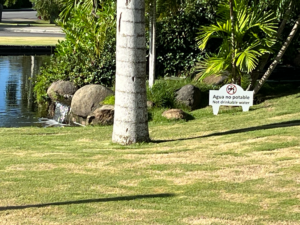Originally published 4 November 2013.
Human beings are social creatures. We were made to interact and form relationships with others. I can’t imagine what my life would be like without the presence of other people in it. I would have to say that one of my biggest fears is being totally alone. Aside from this fear of being alone, I often face a very specific fear around losing my Mom.
I have an older mother–she had me when she was 36, so she’s in her early 70s now. I’ve always had an excellent relationship with her, made closer and more dependent because I was a socially awkward child and didn’t have any friends to rely on outside the home. I’m much better as an adult, and am fully self-reliant, but I still depend on Mom a lot for emotional support.
This past week, I had an anxiety spike when something she said made me think briefly that she was making some “last plans.” That turned out not to be the case, but it opened up a door in my mind and the thoughts of being without her jumped to the forefront.
Living in the present is so much harder in practice than it seems. I struggle with that all the time. I catch myself worrying about things that haven’t even happened yet and that I have no personal control over. helpguide.com calls that “unproductive worry.”
“…worrying is self-generated. The trigger comes from the outside, but an internal running dialogue maintains the anxiety itself.
“When you’re worrying, you’re talking to yourself about things you’re afraid of or negative events that might happen. You run over the feared situation in your mind and think about all the ways you might deal with it. In essence, you’re trying to solve problems that haven’t happened yet, or worse, simply obsessing on worst-case scenarios.
“All this worrying may give you the impression that you’re protecting yourself by preparing for the worst or avoiding bad situations. But more often than not, worrying is unproductive—sapping your mental and emotional energy without resulting in any concrete problem-solving strategies or actions.
How to distinguish between productive and unproductive worrying? If you’re focusing on ‘what if’ scenarios, your worrying is unproductive.”
I do a lot of unproductive worrying. The fact that I’m aware of it is a first step, but it doesn’t solve the problem. All of us who struggle with anxiety know that if all it took to cure anxiety was to acknowledge the pointlessness of it, we’d all be cured! So how can we combat it? By working to change our thought patterns.
Lately, the first thing I do when I get an anxious thought is think, “So what?” I’ve actually managed to stop my panic in its track a few times by this method. It kind of short-circuits the head-long descent into “OMG what if what if what if what if?!?!”
Let’s say you try the “so what” method and your traitorous brain gives you a bunch of horrible answers to that question. You have to cut that off too. Sometimes, I’ll just say “STOP!” out loud. Then I close my eyes and do some deep breathing, and pray about it.
You don’t have to pray if you’re not religious. Try some sort of mantra or meditation. Focus on all five of your senses to help you stay in the present. Get something like a piece of chocolate. Focus on the feel and taste of it in your mouth. Look at and take in your surroundings. Catalog everything you see, feel, hear, taste, smell. If you’re hyper-focused on “here and now,” you can’t be projected into a possible future.
It’s important to take that first step of being able to distinguish between productive and unproductive worry. Once you’ve done that, you can work on techniques to avoid the latter. What are some ways you have found to jolt yourself out of an anxiety spiral?




